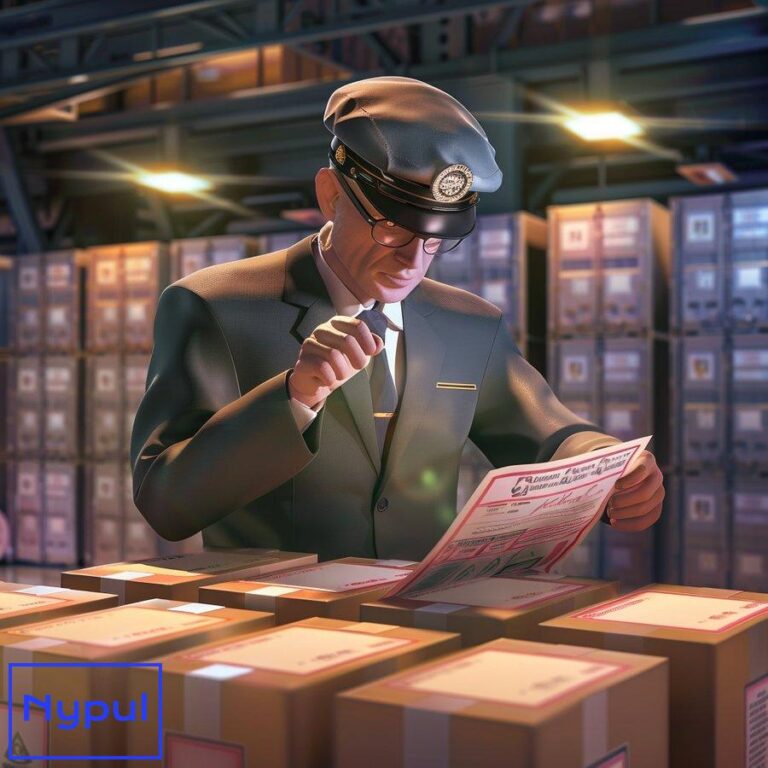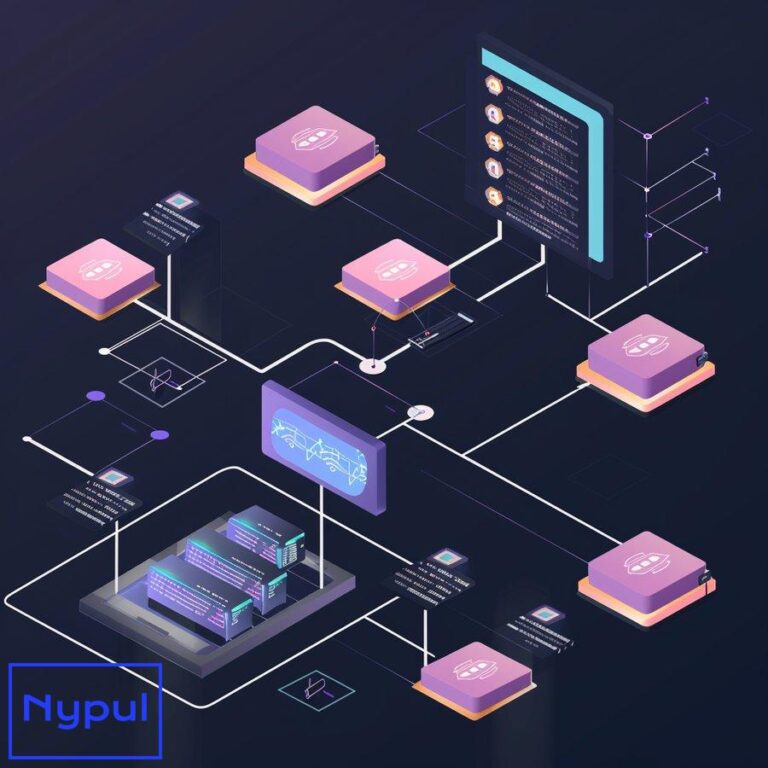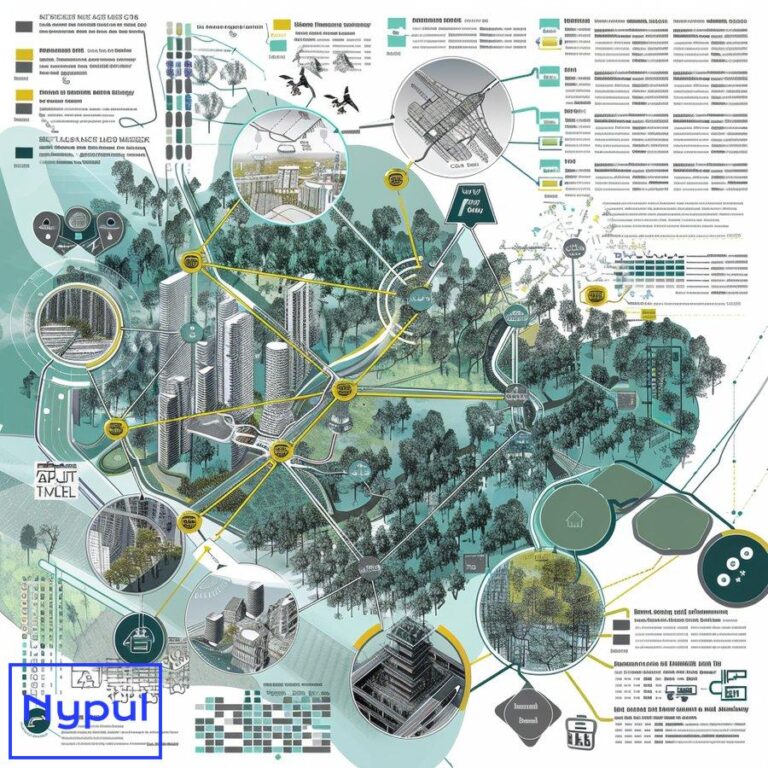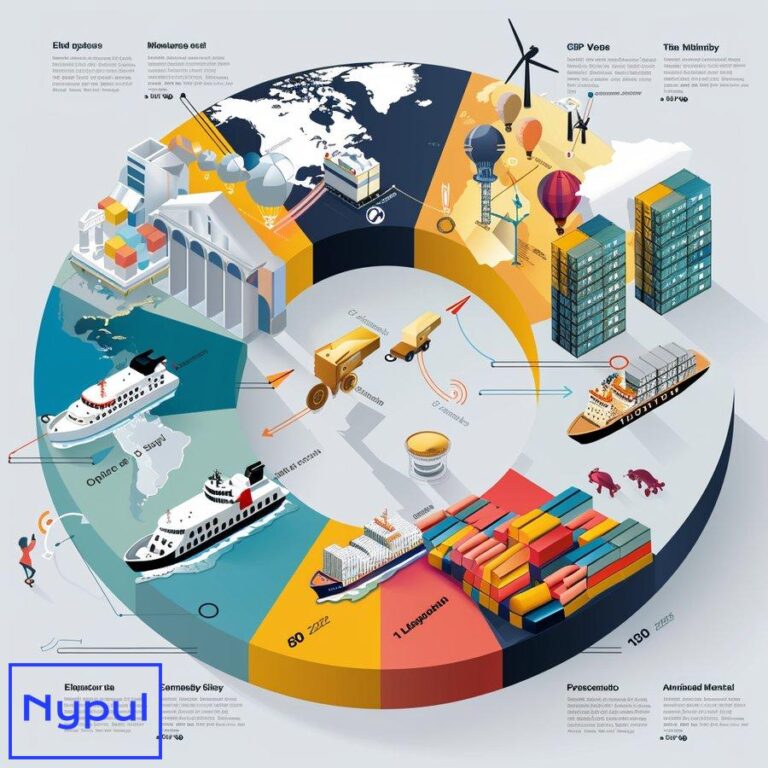What Is a CRM in Transport
What is CRM and why is it important in transport?
Customer Relationship Management (CRM) in transport refers to a comprehensive system designed to manage and optimize interactions between logistics companies and their clients. This technology-driven approach centralizes customer data, streamlines communication, and enhances service delivery in the complex world of transportation and logistics.
The importance of CRM in transport cannot be overstated. As the logistics industry becomes increasingly competitive, companies must differentiate themselves through superior customer service and operational efficiency. A well-implemented CRM system serves as the backbone for achieving these goals.
Enhanced Customer Relationships
CRM systems enable transport companies to build and maintain stronger relationships with their clients. By consolidating customer information, including contact details, shipping history, and preferences, companies can provide personalized service that meets each client’s unique needs. This level of customization fosters loyalty and can lead to increased customer retention rates.
Improved Operational Efficiency
Transport CRMs streamline various processes within the organization. From order management to route planning, these systems automate many tasks that were once manual and time-consuming. This automation not only reduces the likelihood of errors but also frees up staff to focus on more value-added activities, such as strategic planning and customer engagement.
Data-Driven Decision Making
One of the most significant advantages of CRM in transport is the wealth of data it provides. These systems collect and analyze vast amounts of information, offering insights into customer behavior, market trends, and operational performance. Armed with this data, transport companies can make informed decisions about everything from pricing strategies to fleet management.
Seamless Communication
CRM systems facilitate better communication both internally and externally. Within the organization, different departments can easily share information and collaborate on projects. Externally, CRMs often include customer portals or integrated communication tools that allow clients to track shipments, place orders, and communicate with the company in real-time.
Competitive Advantage
In an industry where margins can be tight, and service differentiation is crucial, a robust CRM system can provide a significant competitive edge. By enabling faster response times, more accurate deliveries, and personalized service, transport companies can set themselves apart in a crowded market.
Scalability and Growth
As transport companies grow, managing customer relationships becomes increasingly complex. CRM systems are designed to scale with the business, accommodating more customers, more data, and more complex operations without a proportional increase in administrative overhead.
Regulatory Compliance
The transport industry is subject to numerous regulations, particularly when it comes to international shipping. CRM systems can help companies maintain compliance by tracking necessary documentation, ensuring proper handling of hazardous materials, and maintaining accurate records for auditing purposes.
Forecasting and Planning
By analyzing historical data and current trends, CRM systems can assist in forecasting future demand. This capability is invaluable for transport companies in planning routes, allocating resources, and managing inventory.
Customer Satisfaction and Retention
Ultimately, the goal of any CRM system is to improve customer satisfaction. In transport, where reliability and timeliness are paramount, CRM systems help ensure that customer expectations are consistently met or exceeded. Satisfied customers are more likely to become repeat customers, leading to increased business stability and growth.
The importance of CRM in transport extends beyond mere customer management. These systems have become integral to the overall operation and success of modern logistics companies. As the industry continues to evolve, driven by technological advancements and changing customer expectations, CRM systems will play an increasingly vital role in helping transport companies navigate these challenges and opportunities.
What are the key features of a CRM system in logistics?
A robust CRM system in logistics is characterized by a set of key features that cater specifically to the unique needs of the transport industry. These features work in concert to streamline operations, enhance customer service, and provide valuable insights for strategic decision-making.

Customer Data Management
At the core of any CRM system is its ability to manage customer data effectively. In logistics, this feature is particularly crucial as it encompasses:
- Comprehensive customer profiles including contact information, shipping preferences, and historical data
- Segmentation capabilities to group customers based on various criteria such as shipping volume, frequency, or specific needs
- Integration with other systems to ensure data consistency across the organization
This centralized repository of customer information enables logistics companies to provide personalized service and make informed decisions about resource allocation and customer prioritization.
Order Management
An efficient order management system is vital in logistics CRM. Key aspects include:
- Real-time order tracking from placement to delivery
- Automated order processing to reduce manual errors and speed up operations
- Integration with inventory management systems to ensure accurate stock levels and timely replenishment
By streamlining the order process, logistics companies can improve efficiency and customer satisfaction simultaneously.
Route Optimization
CRM systems in logistics often include or integrate with route optimization tools. These features:
- Analyze multiple factors such as distance, traffic patterns, and delivery windows to determine the most efficient routes
- Adjust routes in real-time based on changing conditions or last-minute order changes
- Provide drivers with turn-by-turn navigation and updated delivery information
Route optimization not only reduces fuel costs and improves delivery times but also enhances the overall customer experience by ensuring timely and predictable deliveries.
Communication Tools
Effective communication is crucial in logistics. CRM systems typically include:
- Automated notifications to customers about shipment status, delays, or delivery times
- Internal messaging systems for seamless communication between different departments
- Customer portals that allow clients to place orders, track shipments, and communicate directly with the company
These tools ensure that all stakeholders are kept informed throughout the shipping process, reducing misunderstandings and improving overall satisfaction.
Analytics and Reporting
Data-driven decision making is a hallmark of successful logistics operations. CRM systems provide:
- Customizable dashboards that offer real-time insights into key performance indicators
- Detailed reports on various aspects of the business, from customer behavior to operational efficiency
- Predictive analytics to forecast future trends and potential issues
These analytical tools help logistics companies identify areas for improvement, anticipate customer needs, and make strategic decisions based on solid data.
Mobile Accessibility
Given the mobile nature of the transport industry, CRM systems must offer robust mobile functionality, including:
- Mobile apps for drivers to update delivery status and access customer information on the go
- Remote access for managers and customer service representatives to handle inquiries from anywhere
- Real-time synchronization between mobile devices and the central system
Mobile accessibility ensures that all team members have the information they need, regardless of their location, leading to faster problem resolution and improved customer service.
Integration Capabilities
A logistics CRM system should seamlessly integrate with other business systems, such as:
- Enterprise Resource Planning (ERP) systems
- Warehouse Management Systems (WMS)
- Transportation Management Systems (TMS)
- Accounting software
This integration ensures data consistency across the organization and provides a holistic view of operations, enabling more efficient and informed decision-making.
Customization and Scalability
Every logistics company has unique needs, and a good CRM system should be:
- Customizable to fit specific business processes and requirements
- Scalable to accommodate growth in customer base and operational complexity
- Flexible enough to adapt to changing industry trends and regulations
Customization and scalability ensure that the CRM system remains a valuable asset as the company evolves and grows.
Compliance and Security
Given the sensitive nature of customer and shipping data, logistics CRM systems must prioritize:
- Robust security measures to protect against data breaches and unauthorized access
- Compliance features to ensure adherence to industry regulations and standards
- Audit trails to track changes and maintain accountability
These features not only protect the company and its customers but also build trust and credibility in the marketplace.
Customer Support and Service Management
Effective customer support is critical in logistics. CRM systems should include:
- Ticketing systems to track and manage customer inquiries and issues
- Knowledge bases to provide quick answers to common questions
- Service level agreement (SLA) tracking to ensure timely resolution of customer problems
By streamlining the support process, logistics companies can improve customer satisfaction and loyalty.
The key features of a CRM system in logistics work together to create a comprehensive solution that addresses the unique challenges of the transport industry. By leveraging these features, logistics companies can improve operational efficiency, enhance customer relationships, and gain a competitive edge in the market.
How does CRM enhance customer service in transport?
Customer Relationship Management (CRM) systems play a pivotal role in enhancing customer service within the transport industry. By leveraging technology and data, CRM enables transport companies to provide a level of service that meets and often exceeds customer expectations. This enhancement of customer service manifests in several key areas:

Personalized Customer Interactions
CRM systems store comprehensive customer profiles, including preferences, shipping history, and specific requirements. This wealth of information allows transport companies to:
- Tailor their services to individual customer needs
- Anticipate customer requirements based on historical data
- Provide personalized recommendations for shipping options or routes
For example, if a customer frequently ships to a particular destination, the CRM can prompt customer service representatives to suggest optimized routes or bulk shipping discounts, demonstrating attentiveness to the customer’s business patterns.
Proactive Problem Resolution
One of the most significant ways CRM enhances customer service is through proactive problem resolution. CRM systems can:
- Identify potential issues before they escalate
- Alert relevant team members to take preventive action
- Track patterns that may indicate recurring problems
For instance, if a particular route consistently experiences delays, the CRM can flag this issue, allowing the company to proactively inform affected customers and work on long-term solutions.
Improved Response Times
CRM systems streamline customer service processes, leading to faster response times:
- Automated ticket routing ensures inquiries reach the right department quickly
- Access to comprehensive customer data allows representatives to resolve issues more efficiently
- Self-service portals enable customers to find answers to common questions without waiting for assistance
These improvements in response time can significantly enhance customer satisfaction, particularly in an industry where time-sensitivity is often crucial.
Consistent Omnichannel Experience
Modern customers expect to interact with companies through various channels. CRM systems in transport can provide a consistent experience across:
- Phone support
- Email communications
- Live chat
- Social media platforms
- Customer portals
By centralizing customer data and interaction history, CRM ensures that customers receive consistent information and service quality regardless of the communication channel they choose.
Enhanced Transparency
Transparency is crucial in the transport industry, and CRM systems significantly improve this aspect of customer service by providing:
- Real-time tracking information for shipments
- Automated updates on delivery status
- Clear communication about potential delays or issues
This level of transparency builds trust with customers and reduces anxiety associated with shipping valuable or time-sensitive goods.
Customized Reporting and Analytics
CRM systems offer customized reporting capabilities that can enhance customer service by:
- Providing insights into customer satisfaction levels
- Identifying trends in customer inquiries or complaints
- Measuring the effectiveness of different customer service strategies
These analytics enable transport companies to continuously refine their customer service approach based on data-driven insights.
Streamlined Communication
Effective communication is at the heart of good customer service. CRM systems enhance communication by:
- Centralizing all customer interactions in one place
- Enabling easy sharing of information between departments
- Providing templates for common communications to ensure consistency
This streamlined communication ensures that all customer-facing employees have access to the same, up-to-date information, leading to more coherent and effective customer service.
Improved Customer Retention
By enhancing overall customer service, CRM systems contribute significantly to customer retention:
- They help identify at-risk customers through analysis of interaction patterns and satisfaction metrics
- Enable targeted retention campaigns based on customer data
- Facilitate regular follow-ups and check-ins to maintain strong relationships
In the competitive transport industry, retaining customers is often more cost-effective than acquiring new ones, making this aspect of CRM particularly valuable.
Feedback Collection and Implementation
CRM systems can systematize the process of collecting and acting on customer feedback:
- Automated surveys can be sent after key interactions or shipments
- Feedback can be easily categorized and analyzed for trends
- Action items can be generated and assigned to relevant team members
This systematic approach to feedback ensures that the voice of the customer is consistently heard and acted upon, leading to continuous improvement in service quality.
Personalized Marketing and Upselling
While primarily focused on service, CRM systems also enhance the customer experience through personalized marketing:
- Targeted promotions based on shipping history and preferences
- Customized service recommendations that add value to the customer’s operations
- Timely upselling of relevant services based on customer needs
When done correctly, this personalized approach can be perceived as a valuable service rather than intrusive marketing.
The enhancement of customer service through CRM in transport is not just about implementing technology; it’s about leveraging that technology to create a customer-centric culture within the organization. By providing comprehensive customer insights, streamlining processes, and enabling proactive service, CRM systems empower transport companies to deliver exceptional customer experiences consistently.
This elevated level of service can lead to increased customer satisfaction, improved loyalty, and ultimately, a stronger competitive position in the market. As the transport industry continues to evolve, those companies that effectively utilize CRM to enhance their customer service will be best positioned to thrive in an increasingly customer-driven marketplace.
What types of CRMs are available for the transport industry?
The transport industry has unique needs when it comes to Customer Relationship Management, and as a result, several types of CRM systems have been developed to cater to these specific requirements. Understanding the different types available can help transport companies choose the most suitable solution for their operations.
Cloud-Based CRM Systems
Cloud-based CRMs have become increasingly popular in the transport industry due to their flexibility and accessibility. These systems offer several advantages:
- Accessibility from any location with internet connectivity
- Reduced need for on-premises IT infrastructure
- Regular updates and improvements managed by the provider
- Scalability to accommodate business growth
Examples of cloud-based CRMs used in transport include Salesforce Transportation and Logistics Cloud and Oracle Transportation Management Cloud.
On-Premises CRM Systems
Some transport companies, particularly those with stringent data security requirements or unique operational needs, opt for on-premises CRM solutions. These systems are:
- Installed and maintained on the company’s own servers
- Customizable to a high degree
- Potentially more secure, as data is kept in-house
- Often preferred by larger organizations with existing IT infrastructure
Microsoft Dynamics 365 (when deployed on-premises) and SAP Transportation Management are examples of CRMs that can be implemented on-premises.
Industry-Specific CRM Systems
These are CRM solutions designed specifically for the transport and logistics industry. They offer:
- Features tailored to transport operations, such as shipment tracking and route optimization
- Industry-specific analytics and reporting
- Often, a shorter implementation time due to pre-configured industry standards
Ramco Logistics Software and Magaya Supply Chain are examples of industry-specific CRMs for transport.
Integrated ERP-CRM Systems
Some transport companies choose integrated systems that combine CRM functionality with Enterprise Resource Planning (ERP). These systems offer:
- Seamless data flow between customer management and operational processes
- A unified platform for managing all aspects of the business
- Often, more comprehensive analytics due to the integration of customer and operational data
SAP S/4HANA for transportation and logistics is an example of an integrated ERP-CRM system.
Mobile-First CRM Systems
Given the mobile nature of the transport industry, some CRM systems are designed with a mobile-first approach. These systems prioritize:
- User-friendly mobile interfaces
- Offline functionality for areas with poor connectivity
- Real-time data synchronization when connected
Samsara is an example of a mobile-first solution that includes CRM functionality for transport companies.
AI-Powered CRM Systems
As artificial intelligence continues to advance, some CRM systems are incorporating AI capabilities to enhance their functionality. These systems offer:
- Predictive analytics for customer behavior and operational efficiency
- Automated task prioritization and assignment
- Intelligent chatbots for customer service
Salesforce Einstein AI, which can be integrated into transport-focused CRM implementations, is an example of AI-powered CRM technology.
Open-Source CRM Systems
For transport companies with in-house technical expertise and a desire for maximum customization, open-source CRM systems are an option. These systems provide:
- Complete control over the source code
- The ability to modify and extend functionality as needed
- Potentially lower upfront costs, although customization can be resource-intensive
SuiteCRM, which can be customized for transport operations, is an example of an open-source CRM system.
Vertical CRM Systems
These are CRM systems that cater to specific verticals within the transport industry, such as freight forwarding, last-mile delivery, or air cargo. They offer:
- Highly specialized features for particular transport niches
- Compliance with specific regulations relevant to the vertical
- Often, a deeper understanding of the unique challenges in that sector
CargoWise, which focuses on logistics and supply chain management, is an example of a vertical CRM system.
Modular CRM Systems
Some CRM providers offer modular systems that allow transport companies to select and implement only the features they need. This approach offers:
- The ability to start with basic functionality and add modules as needed
- Potentially lower costs by paying only for required features
- Flexibility to adapt the system as the business evolves
NetSuite CRM, which can be customized for transport companies, offers a modular approach## How do CRMs integrate with other logistics systems?
Effective integration between a CRM system and other logistics software is crucial for maximizing the benefits of customer relationship management in the transport industry. CRM systems must seamlessly connect with various other systems to provide a comprehensive view of operations and enable efficient decision-making. Some of the key logistics systems that CRMs typically integrate with include:
Transportation Management Systems (TMS)
A TMS is responsible for planning, executing, and optimizing the physical movement of goods. Integration between a CRM and TMS allows for:
- Real-time tracking of shipments and delivery status within the CRM
- Automated updates to customers on shipment progress
- Optimization of routes and schedules based on customer preferences and historical data
Examples of TMS solutions that often integrate with CRM systems include MercuryGate, 3Gtms, and TMW Systems.
Warehouse Management Systems (WMS)
A WMS oversees the day-to-day operations of a warehouse or distribution center. CRM integration with a WMS enables:
- Visibility into inventory levels and availability within the CRM
- Automated alerts when customer orders are ready for shipment
- Optimization of storage and picking based on customer demand patterns
Some popular WMS solutions that integrate with CRMs are Manhattan Associates, HighJump, and Infor.
Enterprise Resource Planning (ERP) Systems
An ERP system integrates various business functions, including finance, HR, and operations. CRM-ERP integration provides:
- A single source of truth for customer and operational data
- Automated sharing of financial information, such as invoices and payments
- Streamlined reporting and analytics across the entire organization
SAP, Oracle, and Microsoft Dynamics are examples of ERP systems that often integrate with CRM platforms.
Freight Forwarding Software
Freight forwarders rely on specialized software to manage international shipments. CRM integration with freight forwarding systems enables:
- Tracking of shipments through multiple carriers and modes of transport
- Automated compliance checks based on destination country regulations
- Customized reporting for freight forwarding activities
Examples of freight forwarding software that integrate with CRMs include Cargowise One, Magaya, and Descartes.
Telematics Systems
Telematics systems collect real-time data from vehicles, such as location, speed, and driver behavior. Integration with a CRM allows for:
- Automated updates on vehicle status and driver performance
- Optimization of routes and schedules based on live traffic data
- Predictive maintenance alerts to minimize vehicle downtime
Omnitracs, Geotab, and Samsara are examples of telematics providers that offer CRM integrations.
Accounting and Invoicing Software
Integrating a CRM with accounting and invoicing software streamlines the financial aspects of customer relationships, enabling:
- Automated invoicing and payment tracking within the CRM
- Visibility into customer payment history and outstanding balances
- Customized reporting on revenue and profitability by customer
Examples of accounting software that often integrate with CRMs include QuickBooks, Xero, and Sage.
Customer Portals and Self-Service Tools
Many transport companies provide customer portals or self-service tools for order placement, tracking, and communication. CRM integration with these platforms ensures:
- Consistent customer data across all touchpoints
- Automated updates to the CRM when customers interact with the portal
- Seamless escalation of issues from the portal to the CRM for resolution
Examples of customer portal solutions that integrate with CRMs include Salesforce Community Cloud, Microsoft Dynamics 365 Customer Engagement, and Zendesk.
Integrating a CRM with these various logistics systems provides transport companies with a comprehensive view of their operations and customer relationships. By breaking down data silos and enabling real-time information sharing, these integrations empower companies to make more informed decisions, improve customer service, and drive operational efficiency.
What challenges are faced when implementing a CRM in transport?
While implementing a CRM system can bring significant benefits to transport companies, it is not without its challenges. Understanding these challenges and developing strategies to overcome them is crucial for a successful CRM implementation. Some of the key challenges include:
Data Integration and Migration
Integrating data from multiple legacy systems and migrating it into the new CRM can be a complex and time-consuming process. Inconsistent data formats, incomplete records, and siloed systems can all contribute to integration challenges. To overcome this, transport companies should:
- Conduct a thorough audit of existing data sources and formats
- Develop a comprehensive data migration plan with clear timelines and responsibilities
- Invest in data cleansing and normalization tools to ensure data quality
User Adoption and Change Management
Successful CRM implementation requires buy-in and adoption from employees across the organization. Resistance to change, lack of training, and perceived complexity of the system can all hinder user adoption. To encourage user adoption, transport companies should:
- Involve employees in the selection and implementation process
- Provide comprehensive training and ongoing support
- Clearly communicate the benefits of the CRM system and how it aligns with the company’s goals
Customization and Configuration
Every transport company has unique processes and requirements, and the CRM system must be customized to fit these needs. Insufficient customization can lead to user frustration and inefficient workflows. On the other hand, over-customization can increase implementation time and costs. To strike the right balance, transport companies should:
- Clearly define their requirements and prioritize the most critical features
- Work closely with the CRM provider to develop a customization plan
- Test the customized system thoroughly before rollout to ensure it meets their needs
Ongoing Maintenance and Support
CRM systems require regular maintenance, updates, and support to remain effective. Lack of internal IT resources or reliance on the CRM provider for support can lead to downtime and reduced productivity. To ensure ongoing system health, transport companies should:
- Allocate sufficient resources for CRM maintenance and support
- Establish clear service level agreements (SLAs) with the CRM provider
- Develop a plan for regular system updates and backups
Measuring Return on Investment (ROI)
Demonstrating the ROI of a CRM implementation can be challenging, as the benefits may not always be immediately tangible. Difficulty in quantifying the impact on customer satisfaction, employee productivity, and operational efficiency can make it hard to justify the investment. To measure ROI effectively, transport companies should:
- Establish clear KPIs and metrics to track the impact of the CRM system
- Conduct regular reviews and adjustments to the CRM strategy based on performance data
- Communicate the ROI to stakeholders and use it to secure ongoing support for the system
Compliance and Security
Transport companies handle sensitive customer and shipment data, and CRM systems must comply with various regulations and security standards. Failure to maintain compliance or protect against data breaches can lead to legal and reputational consequences. To ensure compliance and security, transport companies should:
- Familiarize themselves with relevant regulations and industry standards
- Implement robust security measures, such as access controls and encryption
- Regularly audit the CRM system and processes to identify and address potential vulnerabilities
Overcoming these challenges requires a well-planned and executed CRM implementation strategy. By anticipating potential roadblocks, allocating sufficient resources, and involving key stakeholders throughout the process, transport companies can successfully navigate the challenges and reap the benefits of a well-implemented CRM system.
How can businesses choose the right CRM for their needs?
![]()
Selecting the right CRM system is crucial for transport companies looking to optimize their customer relationships and drive operational efficiency. With a wide range of CRM solutions available, each with its own features and capabilities, it can be challenging to determine which system best fits a company’s unique needs. Here are some key considerations to help transport companies choose the right CRM:
Clearly Define Business Requirements
The first step in selecting a CRM system is to clearly define the company’s business requirements. This involves:
- Identifying the key pain points and challenges the CRM system should address
- Determining the critical features and functionalities needed to support the company’s operations and customer service goals
- Prioritizing requirements based on their importance and impact on the business
By clearly defining requirements upfront, transport companies can narrow down the list of potential CRM solutions and ensure that the selected system aligns with their specific needs.
Assess Industry-Specific Functionality
Transport companies have unique requirements that may not be adequately addressed by generic CRM solutions. When evaluating CRM systems, it’s essential to assess the level of industry-specific functionality offered, such as:
- Shipment tracking and status updates
- Route optimization and planning
- Integration with transportation management systems (TMS) and other logistics software
- Compliance with industry regulations and standards
Choosing a CRM system with strong industry-specific features can help transport companies streamline their operations and provide better customer service.
Consider Integration Capabilities
Transport companies often rely on a variety of software systems, from accounting to warehouse management. When selecting a CRM system, it’s crucial to assess its integration capabilities with other key systems, such as:
- Enterprise Resource Planning (ERP) systems
- Accounting and invoicing software
- Freight forwarding platforms
- Telematics and GPS tracking systems
Seamless integration between the CRM and other logistics systems ensures a comprehensive view of customer relationships and operational data, enabling more informed decision-making.
Evaluate Scalability and Flexibility
As transport companies grow and evolve, their CRM system must be able to scale and adapt to changing needs. When evaluating CRM solutions, consider:
- The system’s ability to handle increasing volumes of data and users
- The ease of adding new features and functionality as requirements change
- The availability of customization options to tailor the system to specific workflows and processes
Choosing a scalable and flexible CRM system can help future-proof the company’s customer relationship management strategy.
Assess Deployment Options
Transport companies have different preferences and requirements when it comes to CRM deployment. Some may prefer a cloud-based solution for its flexibility and reduced IT overhead, while others may opt for an on-premises system for greater control and security. When evaluating CRM systems, consider:
- The company’s existing IT infrastructure and resources
- The level of customization and integration required
- The importance of data security and compliance
- The budget and resources available for CRM implementation and maintenance
Choosing the right deployment option can help ensure a smooth and successful CRM implementation.
Consider User Adoption and Training
The success of a CRM implementation ultimately depends on user adoption and engagement. When evaluating CRM systems, consider:
- The user-friendliness and intuitiveness of the system’s interface
- The availability of training resources and support for end-users
- The level of change management support provided by the CRM vendor
- The ability to customize the system to match existing workflows and processes
Choosing a CRM system that prioritizes user adoption can help drive engagement and ensure that the system is used to its full potential.
Evaluate Vendor Reputation and Support
The CRM vendor’s reputation, experience, and level of support can significantly impact the success of the implementation. When evaluating vendors, consider:
- The vendor’s track record in the transport industry and with similar companies
- The quality and responsiveness of the vendor’s support team
- The availability of training resources and ongoing support
- The vendor’s financial stability and long-term viability
Choosing a reputable and experienced vendor can help ensure a successful CRM implementation and ongoing support for the system.
By carefully considering these factors and aligning them with the company’s specific needs and goals, transport companies can select a CRM system that optimizes customer relationships, drives operational efficiency, and supports long-term growth and success.
What are some real-world examples of successful CRM use in transport?
The transport industry has seen numerous examples of successful CRM implementations that have transformed customer relationships and operational efficiency. Here are a few real-world case studies:

DHL Express
DHL Express, a leading global courier and logistics company, implemented Salesforce as its CRM platform to streamline customer service and enhance the customer experience. By integrating Salesforce with its existing systems, DHL was able to:
- Provide a 360-degree view of customer interactions and shipment data
- Automate routine tasks and workflows, freeing up staff to focus on more complex issues
- Offer personalized service and recommendations based on customer preferences and history
As a result, DHL saw a significant improvement in customer satisfaction scores and a reduction in response times to customer inquiries.
FedEx
FedEx, another major player in the transport industry, leveraged CRM to optimize its sales processes and improve account management. By implementing Microsoft Dynamics 365, FedEx was able to:
- Gain a centralized view of customer data, including sales opportunities and pipeline
- Automate lead scoring and assignment to ensure that high-value leads are prioritized
- Provide sales teams with real-time access to customer information and shipment data
This CRM implementation helped FedEx streamline its sales processes, improve collaboration between sales and operations, and ultimately drive revenue growth.
Maersk
Maersk, a global leader in container shipping and logistics, implemented a custom CRM solution to enhance its customer engagement and loyalty programs. By leveraging customer data and analytics, Maersk was able to:
- Segment customers based on factors such as shipping volume, frequency, and profitability
- Develop targeted loyalty programs and incentives to reward high-value customers
- Provide personalized recommendations for shipping routes, schedules, and services
This customer-centric approach helped Maersk build stronger relationships with its clients, leading to increased customer retention and revenue.
Kuehne+Nagel
Kuehne+Nagel, a leading global freight forwarder, implemented a CRM system to streamline its sales processes and improve collaboration between its global offices. By using Salesforce, Kuehne+Nagel was able to:
- Standardize sales processes and data across its global network
- Provide real-time visibility into sales opportunities and pipeline
- Enable seamless collaboration between sales teams in different regions
This CRM implementation helped Kuehne+Nagel drive sales efficiency, improve cross-selling opportunities, and enhance its global customer service capabilities.
CEVA Logistics
CEVA Logistics, a major provider of freight management and contract logistics services, implemented a CRM system to support its growth strategy and improve customer engagement. By using Microsoft Dynamics 365, CEVA was able to:
- Consolidate customer data from multiple sources into a single platform
- Automate routine tasks such as order processing and invoicing
- Provide customers with a self-service portal for tracking shipments and accessing reports
This CRM implementation helped CEVA streamline its operations, improve customer satisfaction, and support its ambitious growth plans.
These real-world examples demonstrate the transformative power of CRM in the transport industry. By leveraging customer data, automating processes, and enhancing collaboration, transport companies can optimize customer relationships, drive operational efficiency, and gain a competitive edge in a rapidly evolving market.






